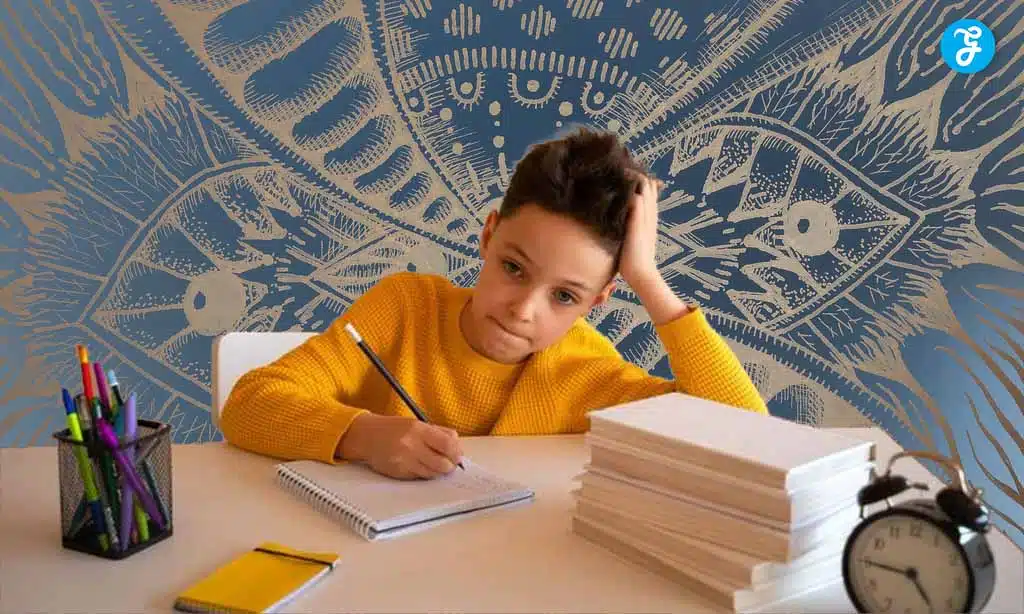As parents, we want our children to succeed in school and enjoy their educational journey. However, sometimes children face challenges that can make learning difficult.
Recognizing the signs that your child might need extra help is crucial for addressing issues early and ensuring they get the support they need.
In this article, we’ll explore ten key indicators that your child may be struggling in school and discuss ways you can help them overcome these obstacles.
1. Sudden Change in Attitude Towards School
One of the most noticeable signs that your child might need extra help is a shift in their attitude towards school.
If your once enthusiastic learner suddenly becomes disinterested or openly antagonistic about attending school, it could signal underlying issues.
Key indicators:
- Complaining about school more frequently
- Expressing a desire to stay home
- Showing reluctance or anxiety about attending classes
What you can do:
- Have open conversations with your child about their feelings
- Ask specific questions about what aspects of school they find challenging
- Reach out to their teacher to discuss any changes they’ve noticed in class
2. Declining Grades
While an occasional poor grade isn’t necessarily cause for alarm, a consistent pattern of declining grades can indicate that your child struggles to keep up with their coursework.
Signs to watch for:
- Grades dropping across multiple subjects
- Difficulty completing homework or assignments
- Reluctance to show you their report card or test scores
How to help:
- Review your child’s work regularly to identify problem areas
- Set up a meeting with their teacher to discuss areas for improvement
- Consider hiring a tutor or enrolling in after-school study programs
3. Excessive Time Spent on Homework
If your child spends excessive time on homework, it could mean they’re having trouble understanding the material or struggling with time management.
What to look for:
- Homework taking significantly longer than the recommended 10 minutes per grade level
- Frustration or meltdowns during homework time
- Incomplete assignments despite long hours of work
Steps to take:
- Create a structured homework routine with scheduled breaks
- Break more significant assignments into smaller, manageable tasks
- Communicate with teachers about homework load and difficulty level
4. Behavioral Changes at School
Sometimes, children who are struggling academically may act out in class as a way to divert attention from their difficulties.
Behavioral red flags:
- Sudden increase in disciplinary issues
- Reports of disruptive behavior from teachers
- Refusal to participate in class activities
How to address it:
- Discuss the behavior changes with your child calmly and without judgment
- Work with the school to identify triggers and develop a behavior plan
- Consider consulting a child psychologist if behavioral issues persist
5. Physical Symptoms and Complaints
Stress from academic struggles can manifest as physical symptoms in children.
Common complaints:
- Frequent headaches or stomachaches, especially on school days
- Difficulty sleeping or changes in eating habits
- Unexplained fatigue or lethargy
What you can do:
- Take your child’s complaints seriously and rule out any medical issues
- Help your child develop stress-management techniques
- Encourage open communication about their worries and fears
6. Avoidance of School-Related Discussions
If your typically talkative child becomes tight-lipped about school, it could be a sign that they’re struggling and feeling embarrassed or anxious about it.
Signs to watch for:
- Refusing to discuss their school day
- Changing the subject when school topics come up
- Becoming defensive or angry when asked about school
How to help:
- Create a safe, judgment-free environment for discussions
- Ask open-ended questions about specific parts of their day
- Share positive experiences from your school days to encourage openness
7. Lack of Confidence or Self-Esteem Issues
Academic struggles can significantly impact a child’s self-esteem and confidence levels.
Indicators of low self-esteem:
- Negative self-talk (“I’m stupid,” “I can’t do anything right”)
- Reluctance to try new things or take on challenges
- Giving up easily when faced with complex tasks
Ways to boost confidence:
- Praise effort and progress, not just results
- Help your child set realistic, achievable goals
- Encourage participation in activities where they excel
8. Social Isolation or Peer Issues
Sometimes, academic difficulties can affect a child’s social life at school.
Signs of social struggles:
- Fewer mentions of friends or social activities
- Reluctance to participate in group projects or extracurricular activities
- Reports of bullying or exclusion from peers
How to address social issues:
- Encourage participation in clubs or sports teams
- Arrange playdates or social activities outside of school
- Teach and model good social skills at home
9. Difficulty with Specific Subjects
Consistent struggles in particular subject areas could indicate a need for extra support or potential learning differences.
What to look for:
- Consistently low grades in specific subjects
- Anxiety or avoidance related to certain classes
- Difficulty grasping concepts that peers seem to understand easily
Steps to take:
- Identify specific areas of struggle through communication with teachers
- Explore additional resources like online tutorials or educational apps
- Consider testing for learning disabilities if difficulties persist
10. Poor Organizational Skills
Disorganization can be both a cause and a symptom of academic struggles.
Signs of organizational issues:
- Frequently misplaced or forgotten school materials
- Messy backpack, locker, or study area
- Difficulty managing time and meeting deadlines
How to improve organization:
- Establish a daily routine for packing backpacks and organizing materials
- Use a planner or digital app to track assignments and due dates
- Create a designated study space at home with necessary supplies
Common Learning Challenges and Strategies
| Learning Challenge | Signs | Strategies |
| 1. Dyslexia | Difficulty with reading, spelling, and writing | Multisensory teaching methods, assistive technology |
| 2. ADHD | Inattention, hyperactivity, impulsivity | Structured routines, break tasks into smaller steps |
| 3. Dyscalculia | Trouble understanding number concepts and math facts | Use of manipulatives and visual aids for math concepts |
| 4. Anxiety | Excessive worry, avoidance of school | Relaxation techniques, cognitive-behavioral therapy |
| 5. Visual Processing Disorder | Difficulty interpreting visual information | Simplified worksheets, verbal instructions |
How to Get Extra Help for Your Child
If you’ve noticed several of these signs in your child, it’s essential to take action. Here are some steps you can take to get your child the extra help they need:
1. Communicate with Teachers
Set up a meeting with your child’s teacher to discuss your concerns. Teachers can provide valuable insights into your child’s performance and behavior in class. They may also be able to offer specific strategies or resources to help your child improve.
2. Consider Tutoring
One-on-one tutoring can be an effective way to address specific academic challenges. Look for tutors who specialize in your child’s area of difficulty, whether math, reading, or study skills.
3. Explore School Resources
Many schools offer additional support services such as reading specialists, math coaches, or after-school homework help programs. Ask about these resources and how your child can access them.
4. Seek Professional Evaluation
If you suspect your child may have a learning disability or attention disorder, consider having them evaluated by a professional. This could include a psychologist, educational specialist, or neuropsychologist who can provide a comprehensive assessment.
5. Develop an Individualized Education Plan (IEP)
If your child is diagnosed with a learning disability, they may be eligible for an IEP. This document outlines specific educational goals and accommodations tailored to your child’s needs.
6. Create a Supportive Home Environment
Establish a quiet, organized study space at home and develop consistent homework routines. Offer praise for effort and improvement, not just grades.
7. Encourage Healthy Habits
Ensure your child gets enough sleep, eats a balanced diet, and engages in regular physical activity. These factors can significantly impact learning and concentration.
8. Build on Strengths
While addressing areas of difficulty, don’t forget to nurture your child’s strengths and interests. This can boost confidence and motivation in all areas of learning.
9. Stay Involved
Regularly check in with your child about their progress and feelings towards school. Attend parent-teacher conferences and stay in touch with educators throughout the year.
10. Be Patient and Persistent
Remember that improvement takes time. Stay positive and consistent in supporting your child’s learning journey.
Takeaways
Recognizing that your child needs extra help in school is the first step towards ensuring their academic success. By staying attentive to these signs and taking proactive steps to address challenges, you can help your child overcome obstacles and develop a love for learning.
Remember, every child learns differently, and with the proper support, they can thrive in their educational journey. Don’t hesitate to contact teachers, school administrators, and other professionals for guidance and assistance.
Your active involvement and advocacy can significantly impact your child’s educational experience and future success.







































